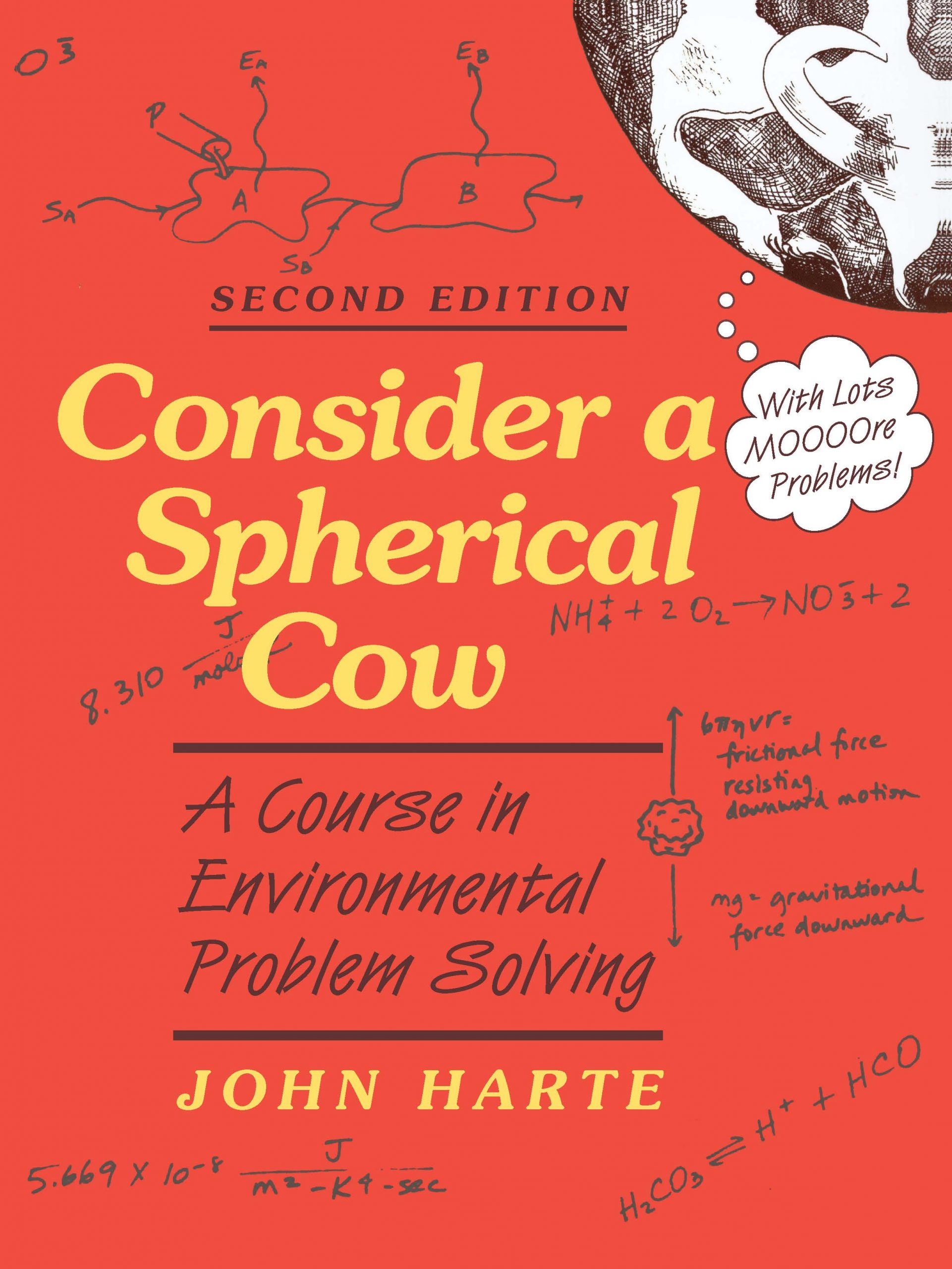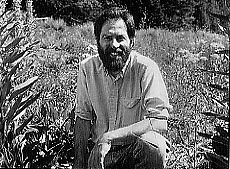
Consider a Spherical Cow, 2nd ed
Now Available
This textbook teaches how to make--and derive useful insight from--relatively simple models of many seemingly complex environmental problems facing our world today.
“For young scientists, Harte’s book is an invaluable set of calisthenics to get the brain working across a wide range of problems. But non-scientists will enjoy this too—it will give you insights into how people think quantitatively.”
—Bill McKibben, author The End of Nature
Summary
This new edition of Consider a Spherical Cow teaches basic mathematical modeling skills that are widely applicable to a huge range of environmental problems facing the world today. Organized both by modeling tools and environmental topics, this innovative book includes 56 posed problems and worked-out solutions. Readers will find introductions to topics, extensive pedagogic material explaining how to use the relevant modeling tools, and opportunities to think more deeply about or confirm steps in the provided solutions. This new edition includes 101 new quantitative homework exercises, an appendix compendium of updated environmental data, a glossary, and a bibliography, plus entirely new sections on probability, toxics, radiation and radioactivity, and epidemics.
With wide topical coverage, Harte teaches the math step by step in the context of actual posed environmental problems, emphasizes limitations and strengths of models, and describes practical applications to real problems and situations. Along with the many worked-out problems, discussion questions and quantitative problems are provided as exercises for the reader. The book emphasizes creative applications of math to environmental science, not plug-in problems.
Resources
Table of Contents
Preface
Acknowledgments
Chapter I. Warm-Up Exercises
Chapter II. Learning the Tools of the Trade
- Probability
- Steady State Box Models and Residence Times
- Thermodynmics and Energy Transfer
- Chemical Reactions and Equilibria
- Non-Steady State Box Models
Chapter III. Applying Basic Tools to Complex Problems
- Biogeochemistry
- Climate
- Survival of Populations
- Toxic Substances
- Radiation and Radioactivity
101 Homework Exercises
Appendix: Useful Numbers
Glossary
Bibliography
Index
Reviews
“For 40 years, the best basic book for learning environmental modeling skills has been John Harte’s classic text, Consider a Spherical Cow. It is now even better. This updated and expanded new edition belongs on the bookshelf of everyone who cares about the fate of our civilization.”
—Paul R. Ehrlich, Stanford University
“For young scientists, Harte’s book is an invaluable set of calisthenics to get the brain working across a wide range of problems. But non-scientists will enjoy this too—it will give you insights into how people think quantitatively.”
—Bill McKibben, author The End of Nature
“Spherical Cow has been, for more than 30 years, much more than a book. It is a lantern that shows the way to a powerful and transferable problem-solving strategy: capture any problem’s key concepts in a highly simplified, quantified approximation to reality, and then perform straightforward calculations that lead you to good-enough conclusions. Cow applies this strategy to environmental problem-solving, producing accessible insights into a suite of urgent issues, ranging from rain’s acidity to population dynamics to nuclear power and toxic chemicals – the last two only in this much awaited, updated edition.”
— Rob Socolow, Princeton University

